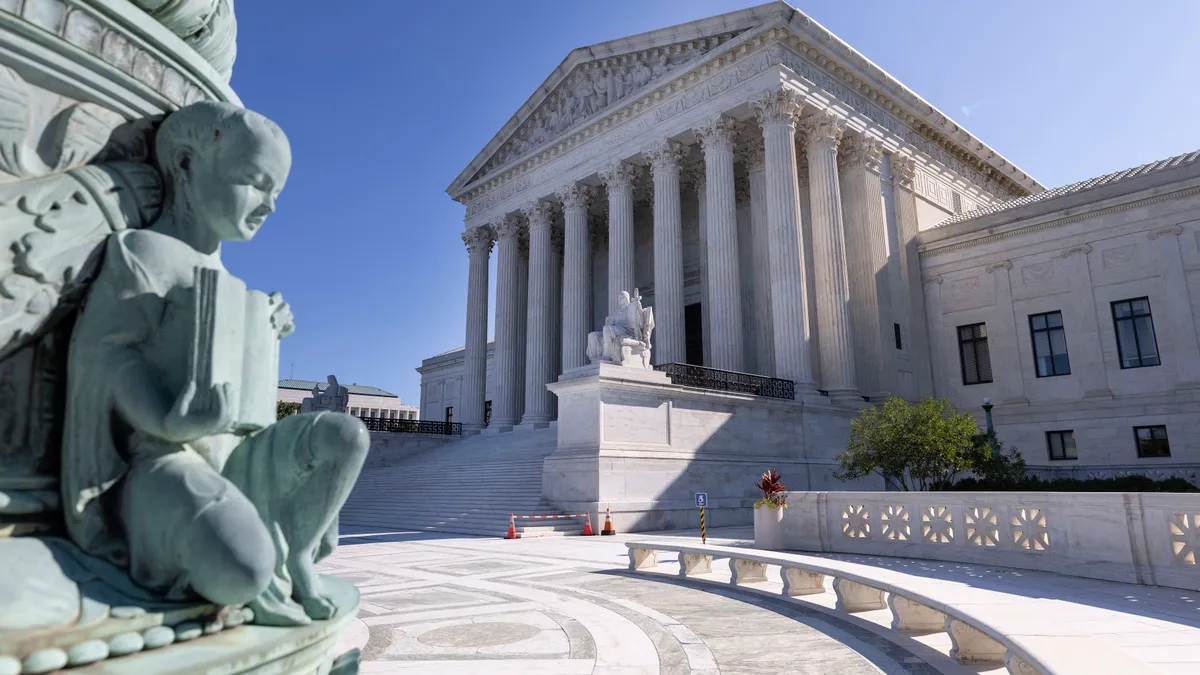Dive Brief:
-
The U.S. Supreme Court agreed this week to hear a case on whether two southern California school board members violated parents' First Amendment rights by blocking them on personal social media accounts the board members used to communicate about job-related issues with the public.
-
The case, O'Connor-Ratcliff v. Garnier, was accepted by the high court after the 9th U.S. Circuit Court of Appeals ruled the board members' decision to block two parents on social media was a government action in violation of the parents’ First Amendment rights.
-
The Supreme Court is set to take up the case next term, when its docket also includes the separate but similar case, Lindke v. Freed. In that case, the 6th Circuit split from the 9th Circuit's decision in Garnier when it ruled a Michigan city official did not violate a resident's First Amendment rights by blocking that resident’s access to the official’s personal Facebook page, saying he was not acting in his capacity as a government employee in his use of that page.
Dive Insight:
While school districts continue to use social media as an effective tool for communication and relationship-building with parents, its role in education and public life more broadly has come under increased scrutiny in recent years.
As a result, districts have sometimes found themselves in the crosshairs of social media lawsuits.
In 2021, for example, the Supreme Court ruled against a Pennsylvania school district in another First Amendment case. That case, Mahanoy Area School District v. B.L., involved a high school that disciplined a student based on a Snapchat post shared with a select group of peers after she didn't make her school's varsity cheerleading team.
Justices said in Mahanoy that while they decided to keep their ruling narrow, “the leeway the First Amendment grants to schools in light of their special characteristics is diminished" by the decision.
The two social media cases the Supreme Court has agreed to hear are not the first of their kind.
In 2021, justices weighed a petition from former President Donald Trump, who was sued by seven people the former president blocked on Twitter after they criticized him and his policies. While the lower courts agreed in that case that Trump's decision to block members of the public violated the First Amendment, the case was ultimately dismissed.
Similarly, in the Garnier case, respondents claim the school board members blocked parents who criticized them. The lawsuit comes as many schools face heightened division in their communities and increased pushback — both online and in school board meetings — from parents over controversial decisions like masking during COVID-19 and curriculum content.
This conflict is especially present in politically divided communities, as opposed to those where a majority tend to vote either liberal or conservative, according to a report released last year by the Institute for Democracy, Education, and Access at the University of California, Los Angeles and the Civic Engagement Research Group at the University of California, Riverside.















